Access

In November 2021, 16 unemployed or underemployed individuals began their journey toward bettering their lives and those of their families by becoming the first cohort to participate in Santa Fe College’s (SF) new Achieve, Conquer, Believe and Excel (ACB Excel) program. ACB Excel’s mission is to empower members of the SF community who want to break the cycle of poverty, but need the financial and emotional support to do so. The concept for this program stemmed from conversations that the college’s president, Dr. Paul Broadie II, had with community leaders regarding local economic needs and...
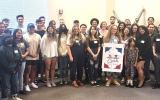
Student access and success are foundational to the community college mission. The learning paradigm proposed by Barr and Tagg (1995) initiated the student success movement, which paved the way for the completion agenda in the 2000s. However, only approximately 26 percent of community college students transfer to a four-year institution (Sansing-Helton et al., 2021). The situation is even bleaker when we evaluate the STEM fields. According to the Community College Research Center (2022), low-income community college students are less likely to transfer to a STEM field, and only 14 percent of...
Tags:

Jackson College has been committed to providing excellent education and support to its students for over 95 years. In today's fast-paced world, college students' requirements and needs are evolving. To address these needs, Jackson College has initiated a pilot program called Harriet's Hub, which serves as a one-stop student resource center.
The name hearkens back to the college’s heritage, remembering a former faculty member, Harriet Myer, who helped college students by establishing a student assistance fund. With two rooms of dedicated space in the college’s library, the hub provides...
Tags:
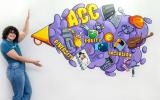
Embracing neurodiversity in educational environments entails challenging traditional perspectives on cognitive differences. The term neurodiversity acknowledges the inherent variation in neurological functioning, emphasizing that diverse cognitive profiles contribute to the richness of the human experience. It encompasses conditions such as autism spectrum disorder, attention-deficit/hyperactivity disorder (ADHD), dyslexia, dyspraxia/developmental coordination disorder, Tourette syndrome, sensory processing disorder, obsessive compulsive disorder, and social pragmatic communication disorder,...
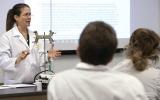
With a focus on accessibility, diversity, and job-relevant education, community colleges are well-positioned to address the evolving needs of students and the workforce. Within the broader field of higher education, community colleges can serve as laboratories for experimentation in pedagogy and curriculum while providing affordable and high-quality education (Hadzi-Antich, 2023).
Recognizing the crucial role of quality and innovative teaching, Johnson County Community College (JCCC) used its strategic plan to leverage student learning to the forefront of institutional initiatives. Goal 1,...
Tags:
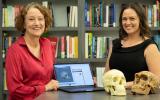
Mesa Community College (MCC) introduced the new Associate in Arts, Emphasis in Anthropology, in fall 2023. This is the fourth Z Degree offered by the college that is entirely online and uses open educational resources (OER), saving students time and money. Chief Online Education Officer Laura Ballard said anthropology was selected for Z Degree learning because,
The department was already offering zero-textbook-cost courses, incorporating openly licensed content, library materials, and instructor-developed content. This allowed us to focus on design and copyright when building out the degree...
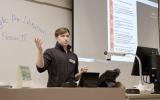
Malcom X (n.d.) once said that “education is the passport to the future, for tomorrow belongs to those who prepare for it today” (para. 2). In the age of information, research has become a key part of that passport to the future. Today, Americans exist in an information-rich world where they often feel overwhelmed. The Pew Research Center found that 35 percent of American adults are interested in improving their research abilities, but express concern about their skills to do so on their own (Horrigan, 2017). The same study showed 49 percent of Americans to be doubtful or wary of their...

Career development programs provide students with valuable skills required in today's job market. Technical proficiency alone is no longer sufficient; employers now prioritize strong interpersonal skills, effective communication, collaboration, and meaningful connections. In response to these demands, Miles Community College (MCC) introduced the Opportunity Realized Program in fall 2022, targeting high school students across eastern Montana. This program equips students with critical social and emotional competencies, bridging the gap between their aspirations and employer expectations and...
Tags:
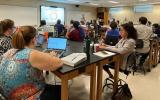
According to a study by the National Academies of Sciences, Engineering, and Medicine (Skorton & Bear, 2018), "educational programs that mutually integrate learning experiences in the humanities and arts with science, technology, engineering, math, and medicine (STEMM) lead to improved educational and career outcomes” (p. 2). With a focus on such outcomes, it's time for community colleges to thoughtfully and intentionally weave the sciences, technology, engineering, arts, and mathematics (STEAM) into students' learning experiences. An integrated STEAM curriculum fosters key skills which...

For the first time in its 57-year history, Dallas College is graduating a class of bachelor’s degree students this year. This occasion marks a pivotal moment for more than 100 students at one of Texas’s largest community college systems, which previously offered associate degrees as its highest degree credential. The program presents students with a life-changing opportunity via a full tuition scholarship and career pathway toward a $60k first-year job. Furthermore, this innovative program attracted the attention of the Bezos Foundation, resulting in the launch of a tuition-free, on-campus...

Virtual student exchange programs have been implemented by higher education institutions across the globe. The Stevens Initiative (2021) found that 214 colleges and universities offered 3,073 virtual exchange programs from fall 2020 to summer 2021 and that 62 of the responding institutions had more than five years of experience with virtual exchanges. These programs, which offer platforms for students to communicate, collaborate, cooperate, and achieve their learning objectives by building learner communities, have been coined by scholars as Collaborative Online International Learning (COIL...
Tags:

Much like online learning, the concept of course sharing is not new; for decades, college students have taken classes at nearby schools that offer seats for visiting learners. In fact, online course sharing originated in community colleges in the late 1990s (Walker, 2021). Today, given the recent transformations within higher education, alongside great strides in technology, the modes through which course sharing can occur now span across individual institutions, consortia, and online platforms and networks. Thousands of colleges and universities across the U.S. use course sharing frameworks...

Working professionals like Mohammed Alani are seeking out new ways to expand their skillsets and fit training into their busy schedules. As a professor of cybersecurity at Seneca College and research fellow at Toronto Metropolitan University, Alani doesn’t have the luxury of taking scheduled in-person courses. He was drawn to the Microsoft certificate offerings through Surge Micro-credentials, stating that, “The timing and format were very suitable for a working person like myself.” These online courses offer self-paced lectures, interactive labs, practice exams, live instructor office hours...
Tags:

America's workforce now has greater access to Rio Salado College classes, micro-credentials, and degree programs through a new partnership with Guild (n.d.), “a Career Opportunity Platform that enables forward-thinking employers to invest in their employees, unlocking life-changing opportunities for personal and professional growth through learning programs, career development, and one-on-one coaching” (Who We Are page).
Rio Salado College is among Guild’s newest academic partners, and one of the only community colleges to join Guild’s growing Learning Marketplace. The Marketplace provides a...

In 2016, a group of students sent a letter to Seattle Central College’s administrators to name a part of their identity they felt was being overlooked as they embarked on a journey that would be pivotal in determining their futures. The students, who were previously incarcerated, had chosen education as the path to restart their lives upon leaving a Washington state prison. While community and technical colleges are open access institutions, they are still institutions with barriers that are, at times, only visible to some of the most minoritized and marginalized in our communities. In...
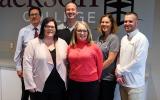
In January 2018, 14 local school district superintendents and Jackson College’s (JC) President and CEO, Dr. Daniel J. Phelan, initiated the launch of Jackson County Early College (JCEC), designed to offer students the opportunity to earn a high school diploma and an associate degree, certification, or up to 60 college credits. This article highlights the program’s successes since its first students walked through the doors in fall 2018.
Cost Effectiveness
Since the inception of JCEC, JC has reduced tuition and fees for early college students in a variety of ways. The college capped digital...

Community colleges are uniquely situated to address the nation’s need for a highly innovative, adaptable, and skilled workforce. At the federal and state levels, funding is available for design and delivery of workforce-building programs combining academic excellence, technical training, and practical experience.
Santa Fe College (SF) in Gainesville, Florida, has received a state grant to create a STEM-focused charter high school. The charter school will provide students with the tools needed to be successful in the 21st century workforce. SF’s vision is to ensure that each charter school...
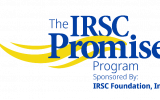
In response to a pandemic that has disrupted lives and derailed plans for so many in its service district, Indian River State College (IRSC) has made its most significant investment ever in eliminating barriers to higher education. The college introduced the IRSC Promise in March at a special assembly for Fort Pierce Central High School seniors. Funded by the IRSC Foundation, the Promise is a tuition-paid program for qualifying 2022 high school graduates from public and public charter schools in Indian River, Martin, Okeechobee, and St. Lucie counties who seek to earn associate degrees at...
Tags:

On February 3, 2021, I participated in a California panel discussion hosted by the Community College Research Center (CCRC) at Columbia University that addressed the cost benefits of adopting a guided pathways model. The discussion focused on two CCRC reports: The Economics of Guided Pathways: Cost, Funding, and Value (Belfield, 2020) and Funding Guided Pathways: A Guide for Community College Leaders (Jenkins et al., 2020). Based on my experience as President of Bakersfield College (BC), I assert that both reports can be extremely useful for administrators responsible for budgets, best...

Mesa Community College (MCC) launched its second Z Degree program, an Associate in Arts with an emphasis in communication, beginning in the spring 2022 semester. The college’s first Z Degree, an Arizona General Education Curriculum certificate and general associate’s degree, was introduced in 2019. A Z Degree is offered completely online with zero textbook costs, saving students time and money.
“The Z Degree offers students greater flexibility, enabling them to take classes that fit their schedule. We built this program for the students who want flexibility, less distraction, and less cost...










